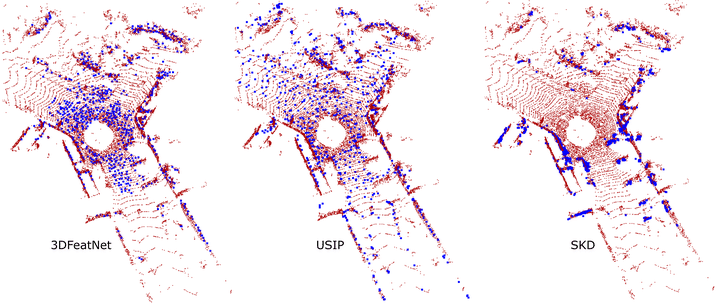 Top-down view of keypoints (blue) extracted from a point cloud (red) for two competitors and SKD.
Top-down view of keypoints (blue) extracted from a point cloud (red) for two competitors and SKD.Abstract
We present SKD, a novel keypoint detector that uses saliency to determine the best candidates from a point cloud for tasks such as registration and reconstruction. The approach can be applied to any differentiable deep learning descriptor by using the gradients of that descriptor with respect to the 3D position of the input points as a measure of their saliency. The saliency is combined with the original descriptor and context information in a neural network, which is trained to learn robust keypoint candidates. The key intuition behind this approach is that keypoints are not extracted solely as a result of the geometry surrounding a point, but also take into account the descriptor’s response. The approach was evaluated on two large LIDAR datasets - the Oxford RobotCar dataset and the KITTI dataset, where we obtain up to 50% improvement over the state-of-the-art in both matchability and repeatability. When performing sparse matching with the keypoints computed by our method we achieve a higher inlier ratio and faster convergence.